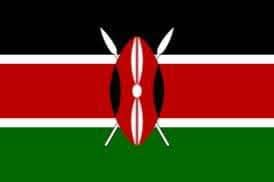Kenya Reaffirms Support for Somalia’s Sovereignty Nairobi, Kenya – May 26, 2025 — The Government…

Kenya commends Rwanda’s progress 30 years after genocide
By Moses Muli
Published: April 11,2024 6:58 PM
Kenya has lauded the strides made by Rwanda after experiencing horrific genocide pledging Nairobi’s continued cooperation for mutual prosperity.
Ministry of Foreign and Diaspora Affairs PS Korir Sing’oei said that Kenya stands in solidarity with Rwanda and her people.
He said that Kenya draws inspiration from how Kigali was able to rebuild and overcome its tragic past.
The PS was representing the government at the commemoration of the 30th Anniversary of the 1994 Genocide against the Tutsi, in Nairobi at the United Nations Office.
“We are inspired by Rwanda’s determination to forge ahead with an unwavering resolve. Present-day Rwanda serves as a distinct mirror of progress, a nation founded on a united vision for the future anchored in economic and structural reforms,” he said.
“We stand in respect and admiration of the survivors who despite their circumstances have worked tirelessly to rebuild Rwanda as we know it today. Their resolve, resilience, strength, courage and fortitude are an inspiration to humanity.”
Sing’oei noted that the genocide against the Tutsi serves as a reminder to protect the inherent human rights to life and dignity.
The commemoration, he said, enflames a deep sense of poignancy on one hand, while at the same time reinforces the importance of upholding the collective duty as the international community to never allow the ugliness of intolerance to rear its head anywhere globally.
“We must never forget that the genocide against the Tutsi happened partly because the international community could not master the resolve to act in a preventative fashion to halt an imminent atrocity.”
The High Commissioner of Rwanda in Kenya, Martin Ngoga reiterated saying the genocide that Rwanda experienced should serve as a powerful reminder to confront hatred, discrimination, and division wherever it may arise.
“Genocide is not an isolated event but a consequence of a society that has allowed prejudice and intolerance to take root. We must ensure that the lessons of the past are never forgotten. We must strive to create a world where diversity is celebrated, where differences are respected, and where all individuals can live free from fear and discrimination,” he said.
Ngoga stressed the need for international cooperation in fighting genocide denial and bringing to book genocide perpetrators.
“Genocide deniers, including academics, continue to perpetuate negationism by conveniently ignoring the judgements of the International Criminal Tribunal for Rwanda,” he said.
“Negationism can in no way be accepted as a tolerable opinion or a legitimate right. Genocide denial is a crime, and therefore must be fought by all means.”
On 26 January 2018, the General Assembly of the United Nations adopted a resolution designating the 7th of April of each year as the International Day of Reflection on the Genocide perpetrated against the Tutsi in Rwanda in 1994.
In Rwanda, the commemoration period lasts for 100 days, which represents the duration of the genocide in 1994.
The event brought together the Rwandan community living in Kenya, Kenyan government officials, members of the diplomatic corps, representatives of UN agencies, and friends of Rwanda among others.



This Post Has 0 Comments